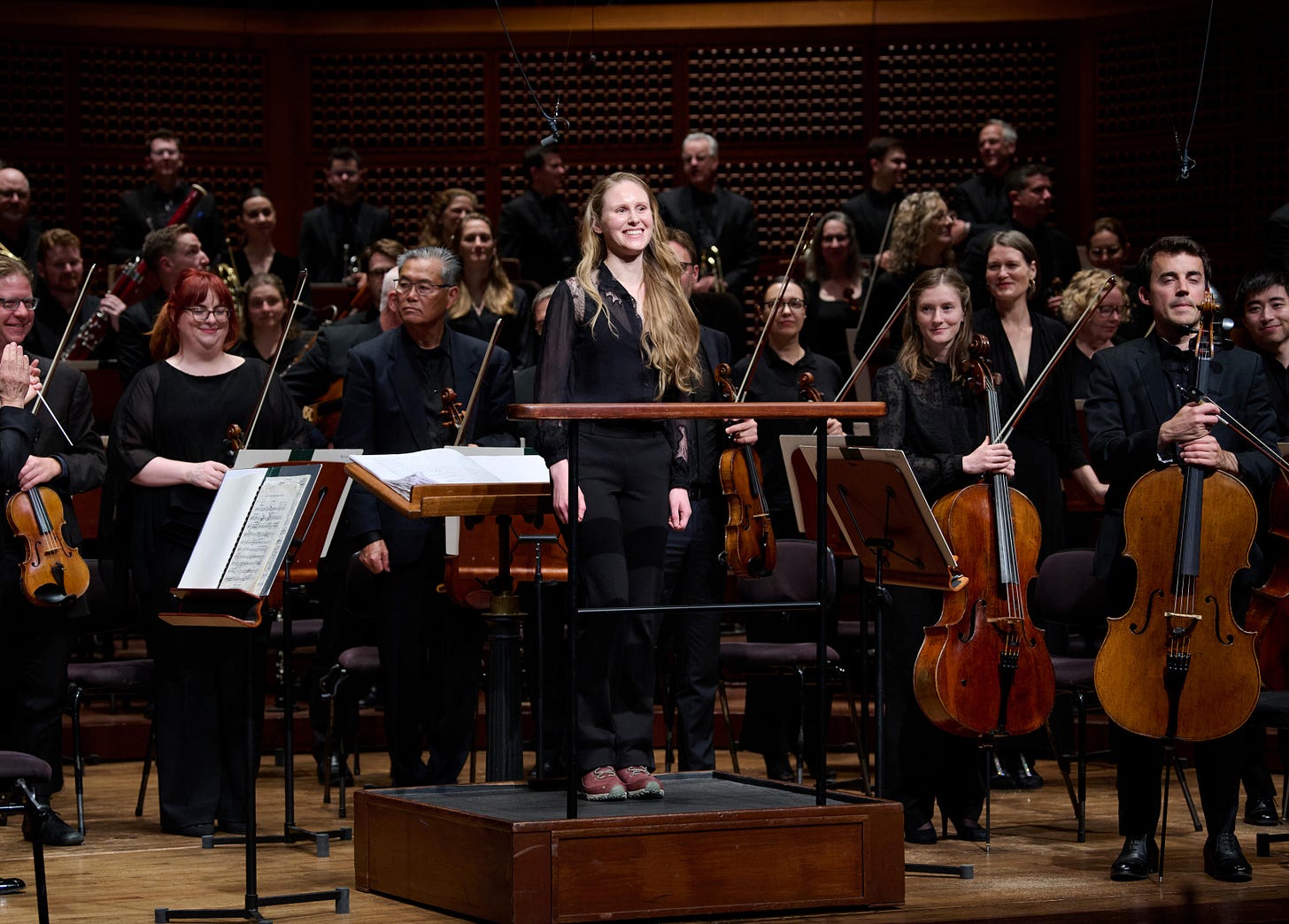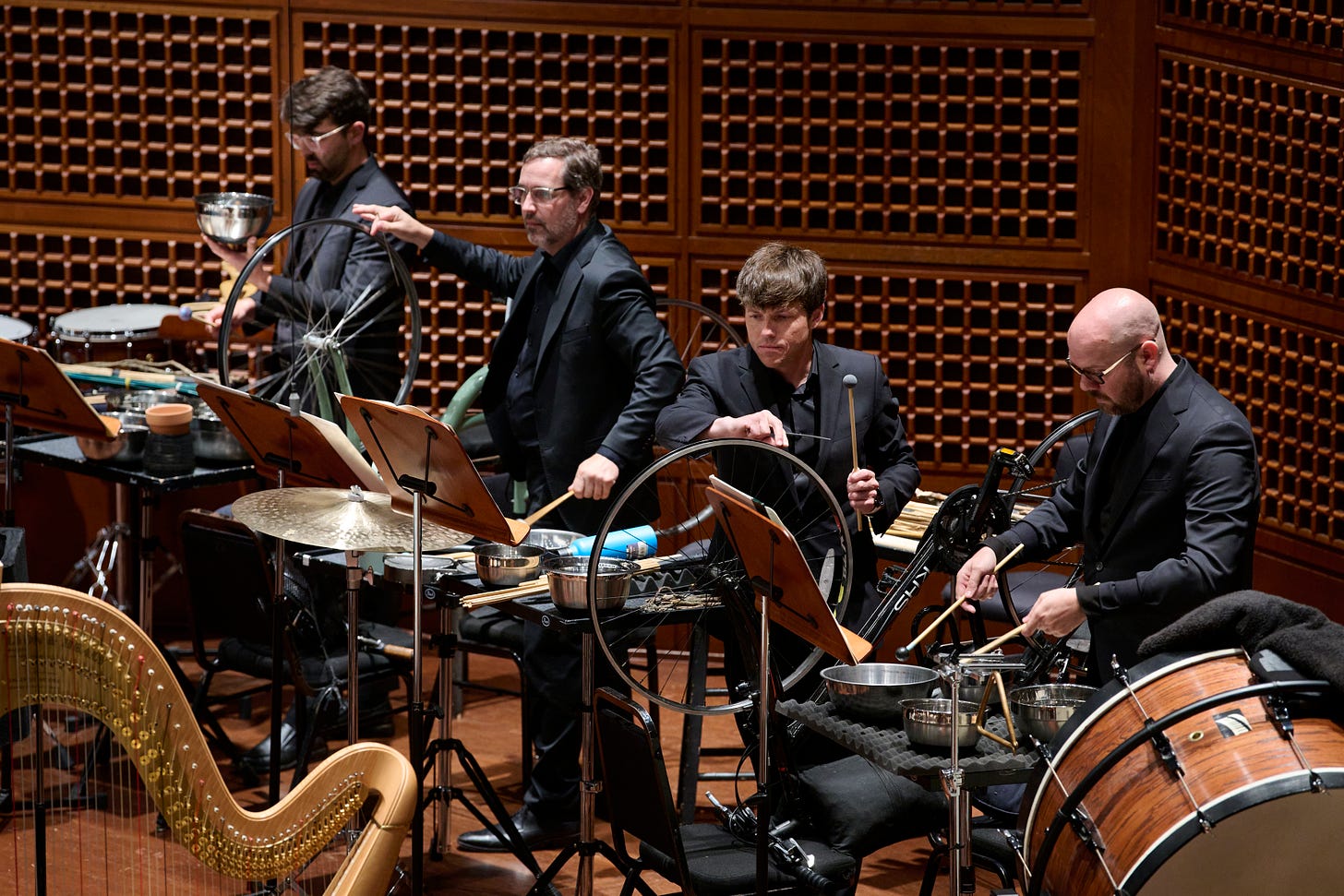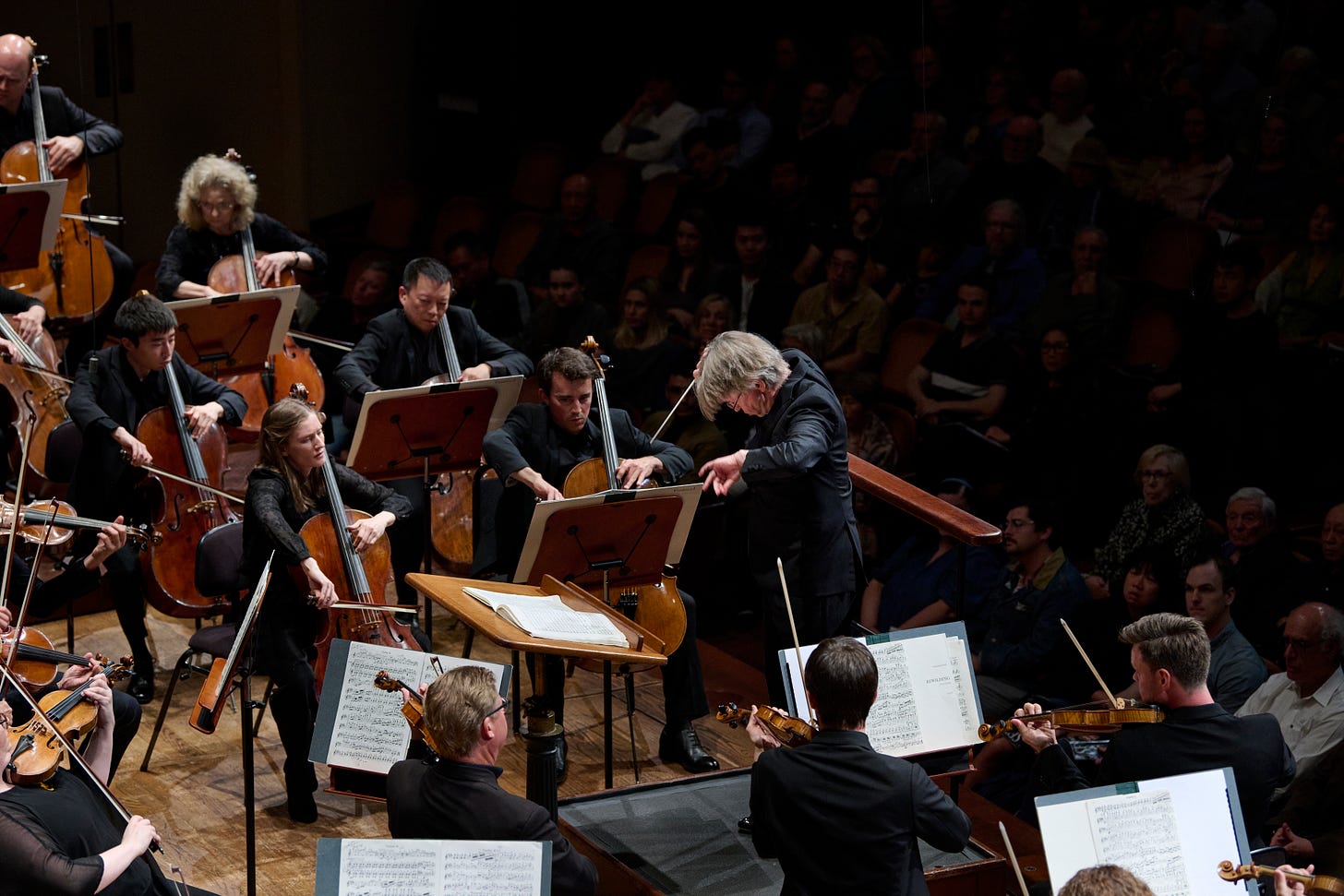Child of nature
An inventive new orchestral work by the ecologically minded Gabriella Smith blossomed at Davies

In Rewilding, the vividly imagined tone poem that had its commissioned world premiere over the weekend in Davies Symphony Hall, composer Gabriella Smith uses the orchestra to evoke the process by which developed spaces — for example an abandoned airport runway — are restored to their original natural balance. In my ignorance, I’d imagined that the title was Smith’s own invention; it certainly sounds sufficiently fanciful and artsy. But no, it turns out to be simply the common name for this sort of ecological reclamation, which Smith has most recently been involved with at an airfield in Seattle.
The piece was written for Esa-Pekka Salonen and the San Francisco Symphony, and on Saturday night, in the second of three performances, the musicians threw themselves into the project with abandon. Smith deploys the orchestra in big, slightly blurry blocks of sound; except in one or two harmonically piquant sections, textural effects and large-scale gestures matter more than the actual notes.
And the effects are endlessly engrossing. The percussion section clacks and clatters in sparse dialogue to conjure up big, empty, denatured vistas. The strings and brass grow increasingly lush — slowly at first, then with detectable eagerness. Birds and insects show up, calling back and forth to one another amid a tentative return. At the center of the piece, individual violinists imitate a chorus of frogs by plying their bows aggressively against the strings in short, sharp shocks.
Rewilding doesn’t boast the big, sprawling ambition of Smith’s Breathing Forests, the thrillingly robust organ concerto that Salonen and the Symphony introduced here in 2023. It’s a more circumscribed project, drawing its subject matter into tight focus and using a comparatively limited sonic palette. For listeners impatient with Smith’s preference for descriptive tone painting over more traditional musical content, I can see how the piece might have been rough sledding. (My neighbor in the audience sat glowering peevishly in his seat afterward.)
But as so often with Smith’s music, I marvel at the way she creates a sound world that is specific to her perennial interest in ecological matters, while working within the recognizable traditions of classical music. In particular, I love the way her work represents a 21st-century version of the Romantic fascination with nature, but with the gauzy sentimentality stripped away.
When Beethoven or Mahler go out into the countryside (in their Sixth and First Symphonies, respectively), they’re very much visitors from the urban centers. Sure, they know their way around fields and country lanes, but they remain tourists, and their vision of the natural world is heavily estheticized. (Strauss’ Alpine Symphony doesn’t even have that much verisimilitude; it could have been composed from Caspar David Friedrich paintings.)
Smith, by contrast, has been climbing trees and hiking mountain trails and diving underwater and scrabbling in the dirt since her youth. She knows the beauties of nature from within, and she’s eager to share what she knows with an audience. Let me show you around my world, her music says. And by the way, it’s your world too. You just have to get off your ass. (OK, I may be imagining that last barb aimed directly at me.)
As if to set off Smith’s rough-hewn authenticity, Salonen programmed Rewilding alongside music by Strauss and Sibelius, among the most sleekly glib composers of the late 19th and early 20th centuries. I greatly enjoyed Salonen’s buoyant take on two of Strauss’ early tone poems, Don Juan and Till Eulenspiegel’s Merry Pranks, and found Sibelius’ Seventh Symphony as fascinating and indecipherable as ever. (We all have our blind spots, and Sibelius is one of mine.) But on this occasion, it was hard to avoid feeling it was all a bit effete.
Elsewhere:
Lisa Hirsch, San Francisco Chronicle/SFCV: “The orchestra hummed, buzzed and yipped with the imagined sounds of insects, birds and maybe even canines. Popping noises arose, frogs ribbitted, a chorus of woodpeckers went wild. The sonorities pass from one group of instruments to another, thickening, bubbling, thinning out.”
Patrick Vaz, The Reverberate Hills: “Rewilding is exactly the sort of thing – a new, substantial, thoughtful, & gorgeous piece designed for a large orchestra – that I fear we will see much less of after Salonen goes, being swept aside by lush orchestrations of pop hits and live performances of film scores to currently popular movies that already have perfectly fine recorded soundtracks.”
Stephen Smoliar, The Rehearsal Studio: “Taken as a whole, the occasion provided the perfect opportunity to appreciate Salonen’s mastery of detail and his chemistry with the ensemble.”
Cryptic clue of the week
From Out of Left Field #271 by Henri Picciotto and me, sent to subscribers last Thursday:
Very dry, yet containing a hint of richness (4)
Last week’s clue:
Descartes’ conclusion about male religious leader (4)
Solution: IMAM
Descartes’ conclusion: I AM
about: containing
male: M
religious leader: definition
Coming up
• Bay Area Rainbow Symphony: The orchestra dedicated to championing LGBTQ+ composers and performing musicians celebrates Pride with the U.S. premiere of the Concerto for Timpani and Orchestra by the Colombian-born Berkeley composer Juan Sebastián Cardona-Ospina. Percussionist Jimmy Chan is the soloist, and Martha Stoddard conducts a program that also includes music by Bacewicz, Mahler, and Sibelius. June 14, San Francisco Conservatory of Music. www.bars-sf.org.
• Tartuffe: Since its 1980 premiere at the San Francisco Opera, Kirke Mechem’s comic opera, based on Moliere, has been a perennial favorite with audiences and opera companies alike. Pocket Opera gives the piece a welcome local revival, with Kyle Naig conducting and a cast of local luminaries led by baritone Eugene Brancoveanu in the title role. June 15, The Hillside Club, Berkeley. www.pocketopera.org.






Gabriella is a national treasure, as are you, for writing so thoughtfully about new music! Looking forward to hearing the piece...
the sibelius 7th is nigh indecipherable because it is *not* sleekly glib